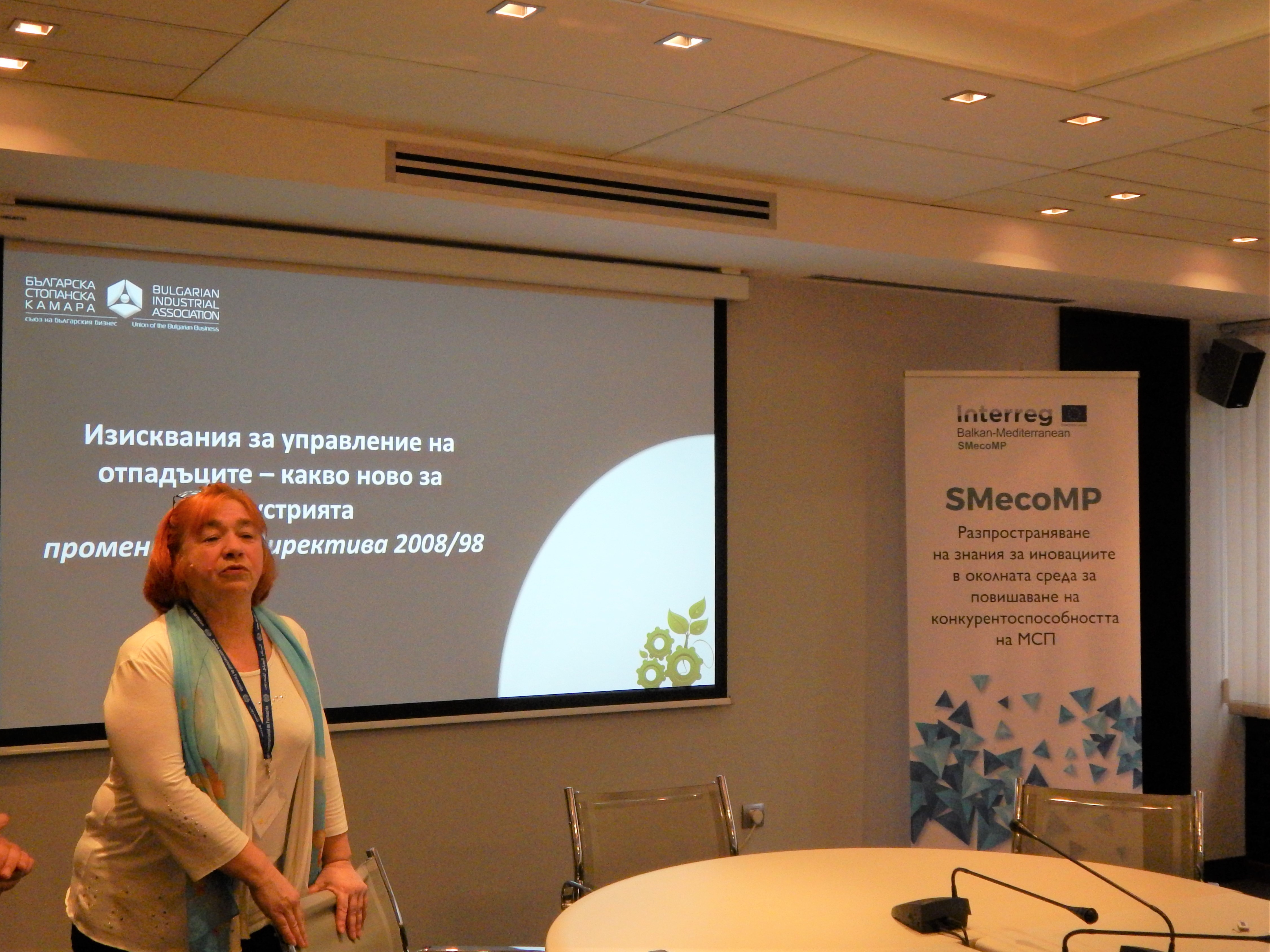What are the current challenges for the Bulgarian business and is it prepared to implement the high requirements of the EU regarding the circular economy? This was the main focus of a discussion meeting, organized by the Bulgarian Industrial Association with representatives of companies and branch organizations. The Circular Economy Business event is part of the BIA series of activities, related to the promotion of the principles of the circular economy and the creation of conditions for cooperation between different industries and business sectors.
Another important part of the discussion was the waste management requirements. The industry news, related to the changes in the Directive 2008/98, were presented by Iliana Pavlova, the Director of the Industry and Environment at the BIA. According to a European Commission study, there is a risk of non-compliance with waste management targets and the separate collection of recyclable waste is not carried out effectively. Problems in this regard are the lack of economic incentives for the citizens to separate their waste. Further issues would be the incomplete coverage of expanded producer responsibility schemes in the costs of separate disposal, and the lack of activity on the part of the municipalities. Recovery organizations are not a control body, they are responsible for organizing the separate collection of waste and its improvement.
The task of the municipalities is to create incentives for its effective implementation- for example, the formation of a household waste tax. “The introduction and implementation of the “polluter pays” principle for the formation of a municipal waste tax and its formation on a basis of quantity will create an economic motivation for the division of waste”, according to Iliana Pavlova; she also added that it is necessary to introduce new methods of waste collection as well as the coverage of all household waste groups.
The participants united around the idea of setting up a working group to work on the amendments of the Spatial Development Act. Right now there is no obligation to provide a space for separate and mixed waste collection in residential buildings, and this makes it difficult to apply the “polluter pays” principle. This issue is the key to achieving the EU’s target on the level of municipal waste recycling and separate collection. Leading role in this work group will be the BIA, the Association of Soft Drink Producers in Bulgaria and the Packaging Waste Recovery Organizations.
Nikolay Mihaylov, a consultant at Denkstatt Bulgaria, shared the latest developments in Brussels in connection to the expanded producer responsibility. On this specific topic, the EC is paying high attention, focusing on four main topics and directions: Modulation is the due eco-charge in accordance to the possibility of repair, reuse and recycling; Proportional costs, which directly reflect the value of all activities; the Equal treatment for small and large merchants; Companies that avoid paying the eco-fee are also subject to more rigorous control operations. In reference to the latter, the consultancy company Denkstatt is compelled by the European Commission to prepare guidelines on a national level for all State Members to implement the Waste Framework Directive and to minimize the gray sector in the event of non-payment of product charges. A new topic, which will be soon introduced, is the responsibility of online trading platforms. Currently, online merchants claim to be the sole intermediary of the transaction, and there is no clear regulation of who is to be held responsible.
Jana Velichkova, the Executive Director of the Association of Soft Drinks Manufacturers in Bulgaria held a presentation and participated actively in the discussion. She provided details on the risks, challenges and opportunities for businesses, related to the plastics and in particular the Directive on certain disposable plastics. “The non-alcoholic industry is committed to continuing the role it is playing as an active supporting partner in the construction of a circular model for the usage of fully recyclable and valuable materials for our packages. However, we remain seriously concerned about the unforeseen and significant environmental and economic effects of the envisioned obligation for permanently attached caps of beverage bottles without even having a practical solution that meets our safety standards. The measure risks dispersing the focus of the most urgent issues such as the increasing collection, recycling and reuse of the industry’s most profitable and most recycled polymer, Mrs. Velichkova said.
Environmental Management Expert Boyan Rashev, Managing Partner at Denkstatt Bulgaria, presented various business models in the in the circular economy and the opportunities for waste recovery. It focuses on real examples of working industrial symbiosis in the country- practices where waste from an enterprise is used as a resource for another business activity.”









